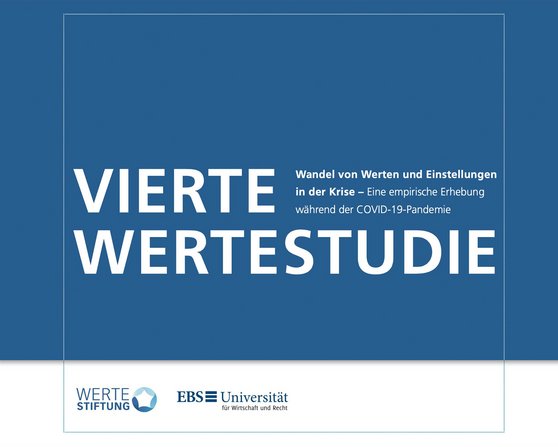
How the COVID 19 pandemic influences societal values
Together, researchers from the Werte-Stiftung and EBS Universität have investigated the impact of the COVID-19 pandemic on value change in German society.

The empirical survey concludes that given sufficiently strong interventions in certain areas of life, the importance of particularly restricted values and preferences can change significantly, even in the short term.
The new normal amid the COVID-19 pandemic is characterized by an increased focus on personal freedom and associated values and attitudes. For example, the importance of leisure time is growing sharply, while the value of work is decreasing. The importance of other freedom-related values, such as independence and imagination, is also increasing, while restrictive aspects, such as obedience or good behavior, are becoming less relevant.
Differences by age groups
Additional analyses according to the age of the respondents show that significant differences by age occur, especially in the area of simple political attitudes - particularly concerning the respondents’ understanding of democracy. Younger participants show stronger preferences toward a strong state (e.g., “the people obey their rulers”), while older participants attach significantly greater importance to the protection of citizens (e.g., “civil rights protect people (…)”). At the same time, the importance of freedom-related core values (friends & leisure) is significantly higher among younger participants, while politics is more important among older respondents. Both, trust in banks and preference for experts instead of the government, are significantly higher among younger respondents.
Three main trends
- Personal freedom: The “new normal” is defined by the pursuit of personal freedom and values associated with it, such as independence and imagination, or intangible preferences such as the desire for more beautiful cities and landscapes. On the other hand, the importance of values such as work, good behavior, and obedience is declining.
- Strong state: In the face of the pandemic, support for a strong state has increased. At the same time, the value of civic participation and freedom of expression has declined. This is an initially ambivalent result in view of the increased importance of personal freedom.
- Science and technology: A positive change in attitudes toward science and technology can be observed, as well as an increased desire for experts to make decisions instead of the government.
About the study design
This value study is the fourth study to address ethical, social and value-oriented issues. The present analysis is based on selected results of the World Value Survey from 1994 to 2019 for Germany and supplemented with the results of its own empirical survey, which was designed and conducted as a standardized online survey. A total of 1,205 people participated in this survey in October 2020. The study design was based on selected questions from the World Value Survey Association.
The complete study is available for download below (only in German).







